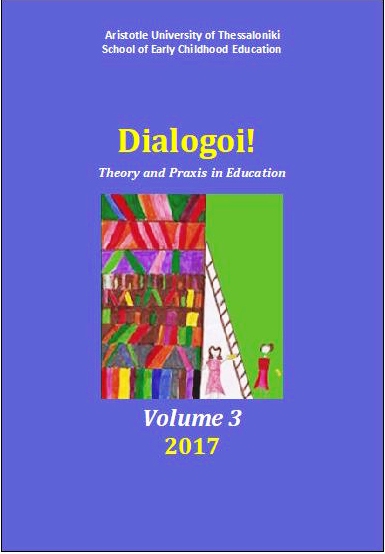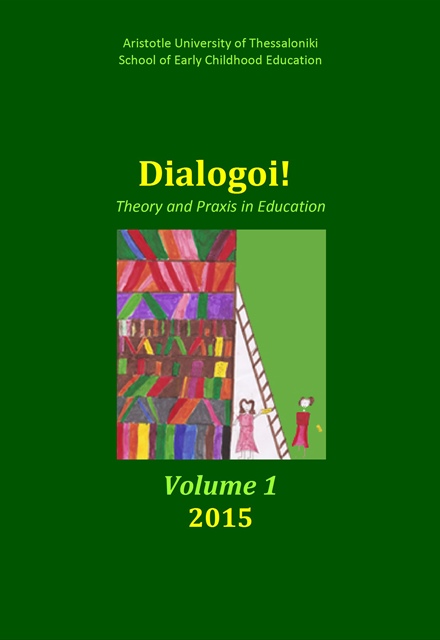Investigation of lexical language ability in pupils D - F grades of primary school: A comparative study

Abstract
Many scholars argue that the lexical language ability of school–aged children is limited and influenced by language skills and cognitive mechanisms such as memory, executive control, and attention. In addition, studies have shown that pupils with learning disabilities have limited vocabulary and they have problems in understanding and producing vocabulary. Pupils with learning disabilities don’t have enriched vocabulary and they don’t have the linguistic experience that they should possess. Furthermore, they show a minimum degree of familiarity with words, incomplete comprehension but also a minimum ability to recall words when needed. The aim of this study was to investigate the skills that limit and influence the vocabulary knowledge, of pupils with learning disabilities, who, according to research findings, have weaknesses and deficits. In addition, another aim was to investigate the possible mental causes of failures in the perception, understanding and production of vocabulary and the relation of these pupils’ weaknesses with corresponding fields of cognitive processes. The analysis of the mistakes in the perception, understanding and production of vocabulary of primary school pupils is an important research field that has attracted the interest of many researchers in Greece and abroad. Their course of development has not been clarified, with the research data to date, especially at a semantic and factual level. For this purpose, informal tests were given to 89 pupils of the last three grades of primary school, 22 with high school performance and 67 with learning disabilities, aiming at assessing their vocabulary knowledge and controlling the degree of acquisition and assimilation of their vocabulary. Specifically the research examines the skills that relate to the knowledge of morphological rules, the knowledge of the conceptual content of words within the sentence, the degree of deduction and generalization of concepts, the logical analysis and association of concepts, and the understanding of metaphorical meanings. In addition, the students wrote two texts, one with the help of phrases and the other with the help of images. Then the lexical variation, the editorial complexity and the lexical competence of the students were evaluated. We chose these specific forms of vocabulary evaluation because we considered them to be of a particular scientific interest for the Greek context since few researches have dealt with the perception, understanding and production of vocabulary of pupils of the last grades of primary school. It was assumed that pupils with learning disabilities will express themselves with poor vocabulary and they will show lower level of lexical language ability not using the appropriate language and grammatical structures. Their texts will be short with a limited number of words and sentences and with structural errors. The results of the study show that the pupils of the last grades of primary school have difficulties in associating the concepts and relationships that exist between the words and in understanding metaphorical meanings. It appears that the development of the meaning of words is a complex process, which depends, to a large extent, on the general cognitive development of children. The students with high school performance handle the language adequately and fluently and their vocabulary is richer. On the contrary, the students with learning disabilities show limited lexical language ability and poor performance in all tests. Based on these findings, the study discusses the possible cognitive causes of the failures and the relation of these students’ weaknesses with corresponding fields of cognitive processes. Additionally, it discusses the role of memory, mental capacity and perceptual ability in the acquisition and development of vocabulary.
Article Details
- How to Cite
-
Xanthi, S. (2017). Investigation of lexical language ability in pupils D - F grades of primary school: A comparative study. Dialogoi! Theory and Praxis in Education, 3, 123–141. https://doi.org/10.12681/dial.14084
- Issue
- Vol. 3 (2017)
- Section
- New researchers

This work is licensed under a Creative Commons Attribution-NonCommercial-ShareAlike 4.0 International License.
Authors who publish with this journal agree to the following terms:
- Authors retain copyright and grant the journal right of first publication with the work simultaneously licensed under a Creative Commons Attribution Non-Commercial License that allows others to share the work with an acknowledgement of the work's authorship and initial publication in this journal.
- Authors are able to enter into separate, additional contractual arrangements for the non-exclusive distribution of the journal's published version of the work (e.g. post it to an institutional repository or publish it in a book), with an acknowledgement of its initial publication in this journal.
- Authors are permitted and encouraged to post their work online (preferably in institutional repositories or on their website) prior to and during the submission process, as it can lead to productive exchanges, as well as earlier and greater citation of published work (See The Effect of Open Access).



